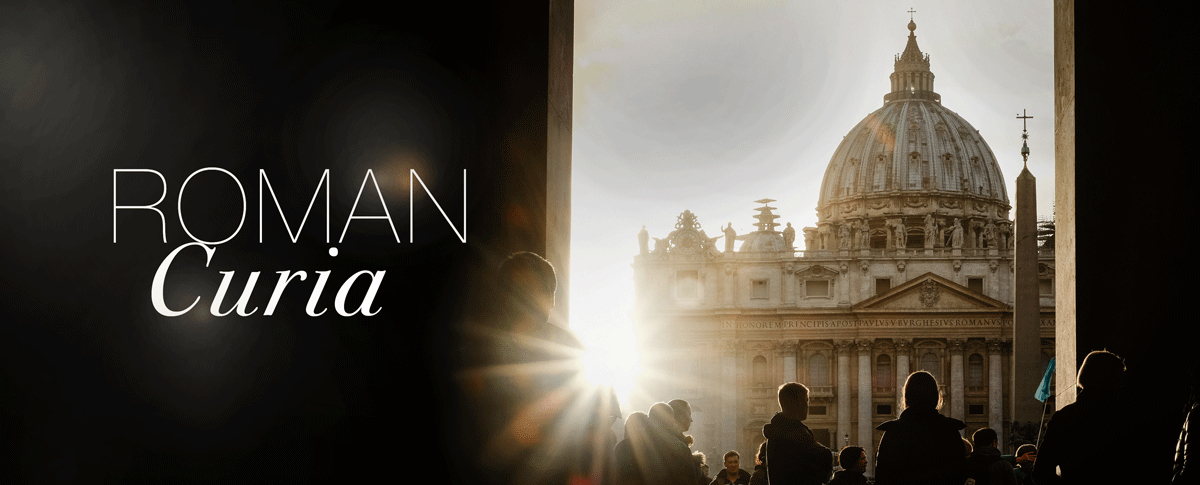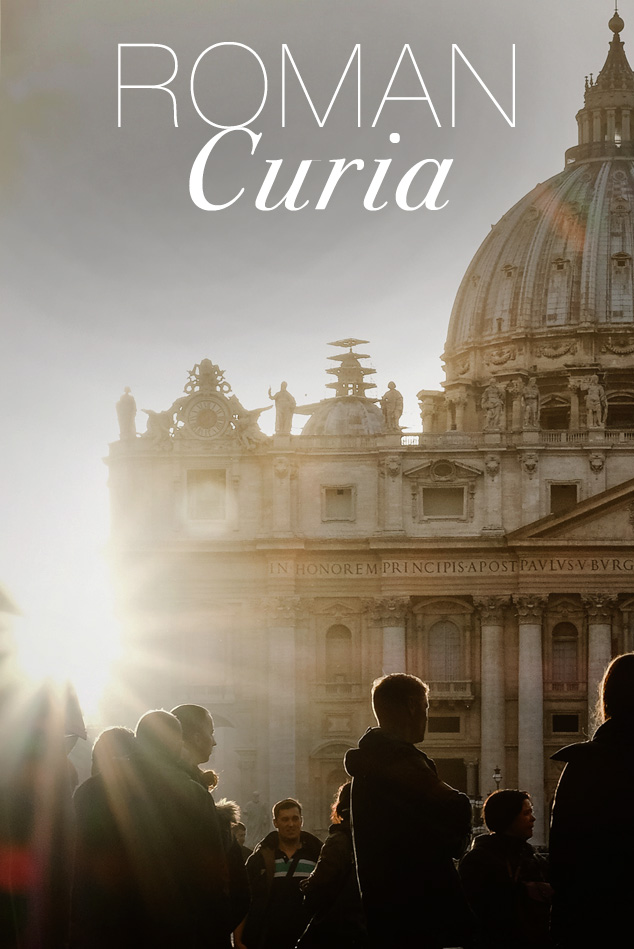President: Cardinal Luis Francisco Ladaria Ferrer, S.J.
As originally constituted by Pope Leo XIII the Pontifical Biblical Commission was a congregation of Cardinals assisted by consultors. After the Second Vatican Council Pope St. Paul VI re-constituted it as a commission composed of “teachers in biblical sciences coming from various schools and nations, who are distinguished ‘for their learning, prudence and Catholic respect for the ecclesiastical Magisterium’ (Sedula cura, Art. 3). This represented a change from a Magisterial body to a consultative one, ”placed at the service of the Magisterium and linked to the Congregation for the Doctrine of the Faith, the Prefect of which is also the President of the Commission." (Art. 1)
In its annual plenary session it takes up a theme determined by the President, often over a period of several years. The documents issued by the commission are the result of these consultative assemblies.
President: Cardinal Luis Francisco Ladaria Ferrer, S.J.
In 1969 Pope Paul VI established the International Theological Commission in connection with the Congregation for the Doctrine of the Faith, tasking it to assist the Holy See. and primarily the Congregation for the Doctrine of the Faith, in examining doctrinal questions of major importance. The Prefect of the Congregation for the Doctrine of the Faith also serves as President of the Commission. By statute, “the Commission is composed of theologians from diverse schools and nations, noted for their knowledge and faithfulness to the Magisterium of the Church."
Like the Pontifical Biblical Commission, the ITC works through annual plenary assemblies and by means of sub-committees. The results of their studies are presented to the Holy Father, and delivered to the Congregation for its appropriate use.
President: Cardinal Sean Patrick O’Malley, O.F.M. Cap.
Instituted by Pope Francis on 22 March 2014 as part of the Church's efforts to deal with the scandal of sex abuse of minors, the Commission's task "… is to provide the Roman Pontiff with advice and counsel and to propose the most appropriate initiatives for the protection of minors and vulnerable persons ... (it) assists diocesan/episcopal bishops, Episcopal Conferences and Eastern Hierarchical Structures, Superiors of Institutes of Consecrated Life and Societies of Apostolic Life and their Conferences in developing appropriate strategies and procedures to protect minors and vulnerable persons from sexual abuse and to provide an appropriate response to such conduct by clergy and members of Institutes of Consecrated Life and Societies of Apostolic Life, according to canonical norms and taking into account the requirements of civil law.” (EP art. 78)
President: Cardinal Marc Ouellet
The Pontifical Commission for Latin America was established in 1958 by Pope Pius XII and reorganized in 1988 by Pope John Paul II, who directed it "to be available to the particular Churches in Latin America, by counsel and by action, taking a keen interest in the questions that affect the life and progress of those Churches; and especially to help the Churches themselves in the solution of those questions, or to be helpful to those dicasteries of the Curia that are involved by reason of their competence."
President: Cardinal Gianfranco Ravasi
The Commission was created by Pope Pius IX (January 6, 1852) "to take care of the ancient sacred cemeteries, look after their preventive preservation, further explorations, research and study, and also safeguard the oldest mementos of the early Christian centuries, the outstanding monuments and venerable Basilicas in Rome, in the Roman suburbs and soil, and in the other Dioceses in agreement with the respective Ordinaries". By treaty with Italy (art. 33 of the Lateran Concordat), the Holy See's authority and sphere of action and study were extended to all the existing catacombs on the Italian territory.
On 12 December 2015 Pope Francis by rescript mandated that the Secretary of State establish a commission to assist public juridical persons of the Church operating in the health sector with their particular difficulties, and in order to contribute to the more effective management of their activities and the conservation of their assets, while maintaining and promoting the charism of the Founders.

